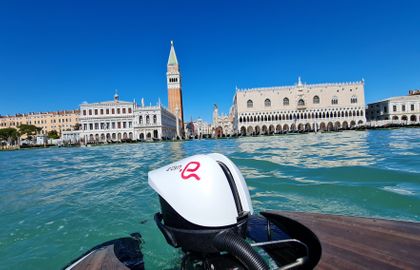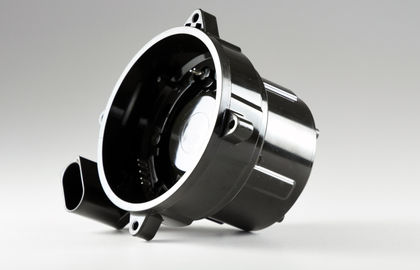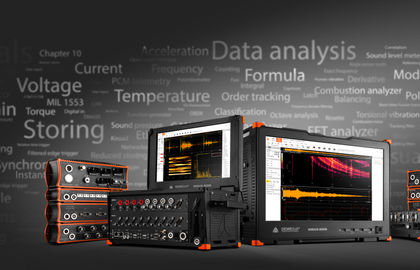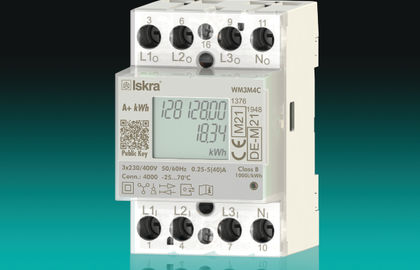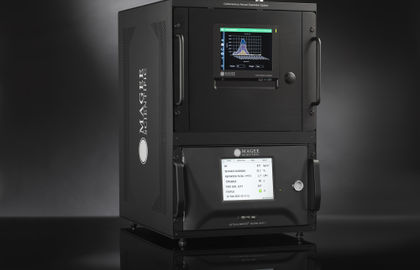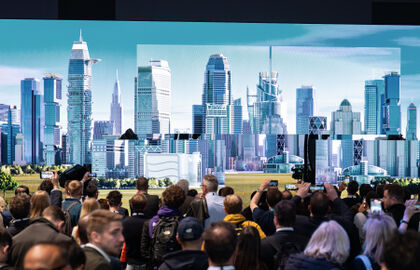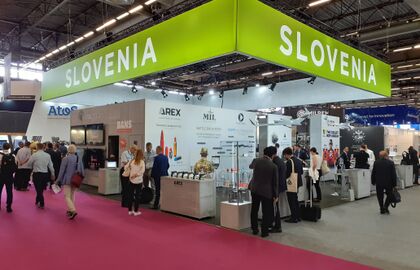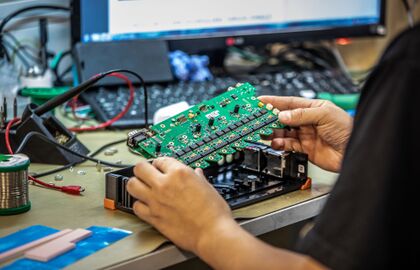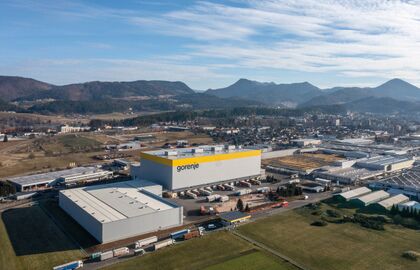Fast growth and high value-added are two of the main characteristics of the Slovenian electro and electronics industry. In fact, the industry is the fastest growing manufacturing branch in Slovenia. Between 2015 and 2019 the electro and electronics industry increased its exports by a massive 43.7 percent. Founded on a strong tradition, this sector is turning into one of the key drivers towards a greener and digital future, providing essential components for e-mobility, smart grids, smart homes, and cities.
Not surprisingly, the sector is one of the strongest in Slovenian manufacturing with close to 5 billion euros of annual turnover and around 30,000 employees. This was made possible by a high standard of quality, strong R&D, and constant innovation integrated into its processes. The vast majority of the sales are generated by companies in the electro industry and manufacturing of home appliances, electro motors, transformers, and equipment for power grids, batteries, cables, pumps, heating and cooling equipment, and various mechatronic components.
Slovenian electronics companies are mostly highly specialized SMEs with leading products in their respective niches in the production of circuit boards, electronic components, optronic and laser devices, telecommunication systems, and measurement equipment. Though the electronics manufacturers annually generate less than 850 million euros, they create over 300 million euros of value-added – that is around 37 percent: this is one of the highest percentages in Europe, on par with Swiss and German electronics industries.
Nikola Tesla may have gotten his first regular job in Maribor, the second largest town in Slovenia. Yet the true rise of the industry started only after World War II, with the formation of two large companies, home appliances producer Gorenje and electronics component manufacturer Iskra.
Gorenje is now a part of the Chinese Hisense group and remains one of the largest companies in Slovenia. It is not only the Chinese that rely on Slovenian tradition and know-how. Bosch Siemens has located one of its excellence centres for small home appliances in Slovenia. Many of the popular products of this large manufacturing group were designed in Slovenia.
Home appliances remains one of the most successful subbranches of the industry with over 2 billion euros of annual sales and a strong local network of suppliers. Some of these suppliers are global leaders in their niche, such as producers of electromotors for vacuum cleaners for example.
Apart from home appliances, the Slovenian electro industry focuses on a few select areas. In some of these fields, Slovenian companies enjoy very competitive positions or are even niche leaders.
A large share of Slovenian electro companies is focusing on the needs of the automotive industry. They supply their automotive partners with lighting systems, cables, coils, sensors, antennas for keyless start systems, electronic and mechatronic components, Li-ion batteries, and – above all – electro motors.
The electronics industry in Slovenia might be small – yet is a powerful player in clearly defined niches like optotronics, laser technology, medical instruments, and measurement devices. One of the key niches is also the design and manufacturing of printed circuits for highly specialized applications. Slovenian-designed boards are for example used in CERN’s Large Hadron Collider. In fact, there is hardly a major particle accelerator in the world that does not use Slovenian developed measurement devices. Small series and innovative electronic products from Slovenia include, among others, advanced medical and dentistry laser systems, sensors for industrial and medical applications, LED optotronic devices, and lab equipment. The industry enjoys strong support from local research and academic institutions. And over 5 percent of its turnover is reinvested into its own R&D: a share well above the EU average.
Mechatronic components, custom-made electro motors, and a vast array of sensors are key elements in some of the megatrends like IoT, smart homes and cities, factories 4.0, and e-mobility. And in the development and production of these elements, Slovenian electro and electronics companies excel. Many already provide both components for smart solutions or engineer entire systems like factory 4.0 production lines. Slovenian-made automatic guided vehicles used in smart logistics centres use locally developed electronic components and solutions. The developers of vehicle tracking systems are preparing solutions for autonomous driving. The locally developed machine vision solutions are indispensable in smart factories. Several companies are active in the field of smart buildings, where automation and control systems for heating and cooling are interwoven with data collection and analysis. In short, the Slovenian electro and electronics industry has proactively responded to the challenges of the future; providing solutions that are integrated, digital, and – above all – friendlier to the planet.

